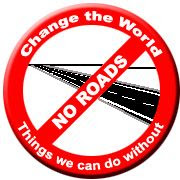 Communities without roads is an exciting concept that allows people to live within walking distances of colleages, customers, friends, medical and educational facilities, shops, restaurants, etc. The sedentary lifestyle of many people is a result of the way cities are currently designed. Instead, we should facilitate the opposite, i.e. people coming out of their houses, offices, and especially their cars, in order to meet other people, getting better food and becoming more healthy in the process.
Communities without roads is an exciting concept that allows people to live within walking distances of colleages, customers, friends, medical and educational facilities, shops, restaurants, etc. The sedentary lifestyle of many people is a result of the way cities are currently designed. Instead, we should facilitate the opposite, i.e. people coming out of their houses, offices, and especially their cars, in order to meet other people, getting better food and becoming more healthy in the process.The car has come to dominate the urban landscape, resulting in a metropolitan conglomeration of suburbs, stringed together along highways. Our most fertile land is now used for roads and cars, and the industries needed to support them. About half the urban area is for buildings, mainly three-bedroom homes on small blocks of land. The other half is used for roads, parks and grassland between roads. A large part of roads, buildings and gardens is also used to park cars.
Ever less fertile land is available food. Global warming forces us to rethink all this. As prices of oil skyrocket, more land is being dedicated to grow bio-fuel, resulting in less land available for food. Also, more extreme weather conditions can be expected, resulting in increasing crop loss.
We need more land to grow fruit and vegetables, in ways as was once the case in traditional gardens and on smaller farms. One place to find such land is by converting roads and office blocks into gardens. This doesn't mean a return to those ‘good-old-days’ of small towns and villages. Instead, we should consider an entirely new type of urban design: communities without roads. Technological progress is not the enemy here. Better security and communication systems can help get such communities off the ground. Electric vehicles can be instrumental in getting such communities off the ground.
What I propose are communities with footpaths and bike-paths instead of roads. Houses would be built close together, around a local center of shops and restaurants. In communities without roads, houses could be smaller, since there's no need to park cars in front or in garages. Building houses close together itself reduces travel distances between them. Pathways to a nearby center could suffice for further daily travel, leading to shops, markets, restaurants, lecture and meeting rooms.
In such a center, people would conveniently eat in restaurants, without traffic and parking hassle and noise - just a short stroll by foot or ride on a bike or in an electric scooter. Eating out means less shopping, since food makes up most of our shopping. It also saves a lot of time - no more shopping, cooking, dishwashing and cleaning, no rubbish to get rid of. Walking more would be good for our health as well.
Living closer together means people could see each other more often, both at home or at such a nearby restaurant. Why travel to an office or University, when you can work or follow courses online? Homeschooling has long proven to be much more effective than school. Why should people be institutionalized, kids packed away into school, the elderly people into ‘homes’ and the sick in hospitals? Instead, we should encourage families to stay together as much as possible and as long as possible in communities without roads.
This would result in huge savings on the current cost of cars, roads, office buildings, car parks, garages, gasoline stations, etc. How much time and money could we save by reducing our daily travel between home and work? And how many lives would be saved if we had less car-accidents? Because of the shared walls between them, townhouses save on the cost of heating in winter and cooling in summer.
To start it off, a University campus could be transformed into a community without roads, where people live and come to learn and work. Anyone who would like to nominate one?